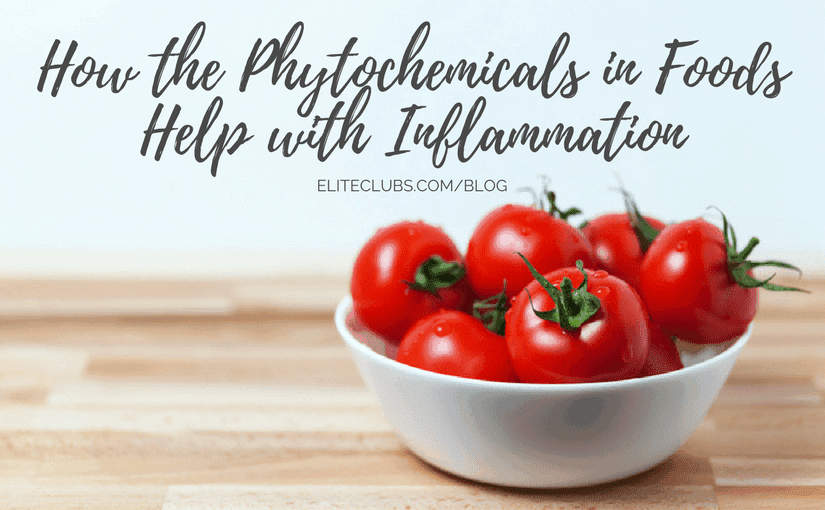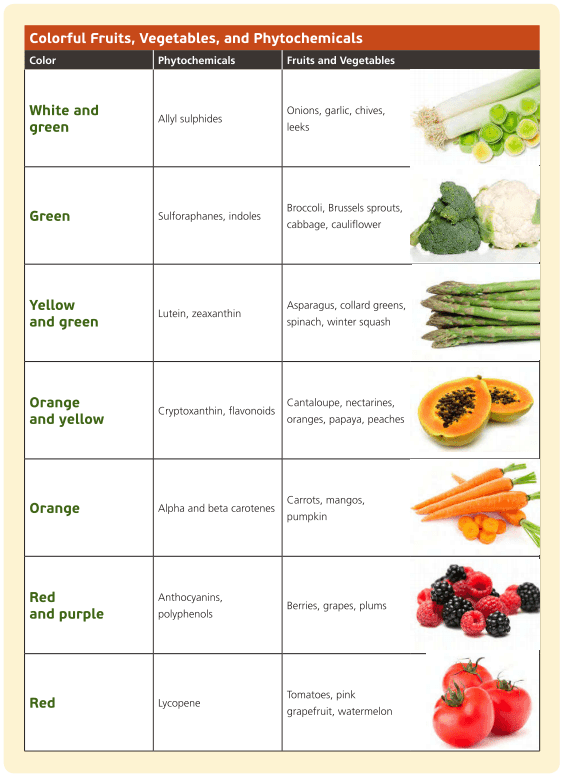
Many members have been asking for more information about anti-inflammatory foods. In part, due to the fact that many have some arthritis in their joints. They want to be able to continue their workout routine without pain. The reason why these foods are important is because they contain vital phytochemicals that can help alleviate some of that inflammation.
4 benefits of phytochemicals:
- Stimulate the immune system
- Reduce the rate of developing inflammation
- Known to slow the growth of cancer cells
- Prevent the DNA damage that leads to cancer
What are phytochemicals?
- These are naturally occurring plant chemicals. They take on various forms and tastes, but are all good sources of protection.
- Many phytochemicals are also antioxidants, which protect the body’s cells from oxidative damage in the air we breathe, the food we eat, and in the water we drink.
Preventing these types of damage and illness may help us be protected from joint pain, inflammation, oxidative damage, and forms of cancer.
So, what are these phytochemical-rich anti-inflammatory foods?
We have listed the fruits and vegetables rich in anti-inflammatory phytochemicals on this blog before, but for your ease, we included them again below.
It is important to eat a variety of foods that include whole grains, legumes, nuts, and seeds. Plus, as you will see, a variety of fruits and vegetables.
Pro Tip: The top vegetable by far is the tomato—fresh, in sauces, as juice, and on your salads.
Eat at least 5 portions/servings of fruits and vegetables a day. Not because they are good for you, but because they will protect you!
Written by Rita Larsen, RDN, CD; Elite Sports Clubs Nutrition Educator & Diet Counselor
Rita is certified in Positive Psychology, University of Penn; has a BS in Dietetics from Kansas State University; and an Internship and Masters at the Indiana University Medical Center.
Schedule a Nutrition Consultation
